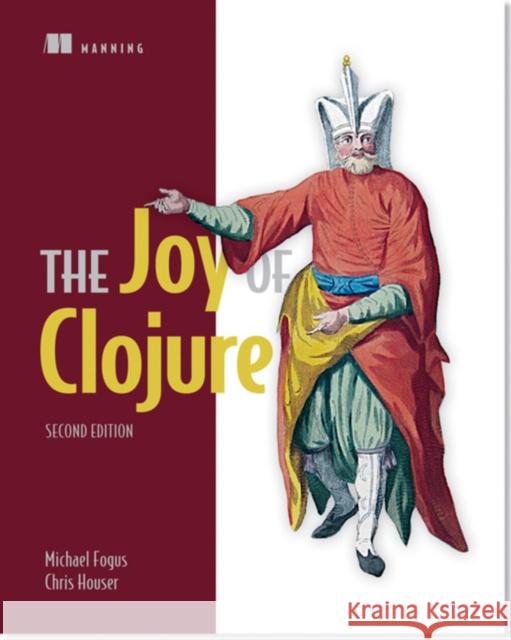The Joy of Clojure » książka
The Joy of Clojure
ISBN-13: 9781617291418 / Angielski / Miękka / 2014 / 520 str.
Summary
"The Joy of Clojure, Second Edition" is a deep look at the Clojure language. Fully updated for Clojure 1.6, this new edition goes beyond just syntax to show you the "why" of Clojure and how to write fluent Clojure code. You'll learn functional and declarative approaches to programming and will master the techniques that make Clojure so elegant and efficient.
Purchase of the print book includes a free eBook in PDF, Kindle, and ePub formats from Manning Publications.
About the Technology
The Clojure programming language is a dialect of Lisp that runs on the Java Virtual Machine and JavaScript runtimes. It is a functional programming language that offers great performance, expressive power, and stability by design. It gives you built-in concurrency and the predictable precision of immutable and persistent data structures. And it's really, really fast. The instant you see long blocks of Java or Ruby dissolve into a few lines of Clojure, you'll know why the authors of this book call it a "joyful language." It's no wonder that enterprises like Staples are betting their infrastructure on Clojure.
About the Book
"The Joy of Clojure, Second Edition "is a deep account of the Clojure language. Fully updated for Clojure 1.6, this new edition goes beyond the syntax to show you how to write fluent Clojure code. You'll learn functional and declarative approaches to programming and will master techniques that make Clojure elegant and efficient. The book shows you how to solve hard problems related to concurrency, interoperability, and performance, and how great it can be to think in the Clojure way.
Appropriate for readers with some experience using Clojure or common Lisp.
What's InsideBuild web apps using ClojureScriptMaster functional programming techniquesSimplify concurrencyCovers Clojure 1.6
About the Authors
Michael Fogus and Chris Houser are contributors to the Clojure and ClojureScript programming languages and the authors of various Clojure libraries and language features.
Table of ContentsPART 1 FOUNDATIONSClojure philosophyDrinking from the Clojure fire hoseDipping your toes in the poolPART 2 DATA TYPESOn scalarsCollection typesPART 3 FUNCTIONAL PROGRAMMINGBeing lazy and set in your waysFunctional programmingPART 4 LARGE-SCALE DESIGNMacrosCombining data and codeMutation and concurrencyParallelismPART 5 HOST SYMBIOSISJava.nextWhy ClojureScript?PART 6 TANGENTIAL CONSIDERATIONSData-oriented programmingPerformanceThinking programsClojure changes the way you think












